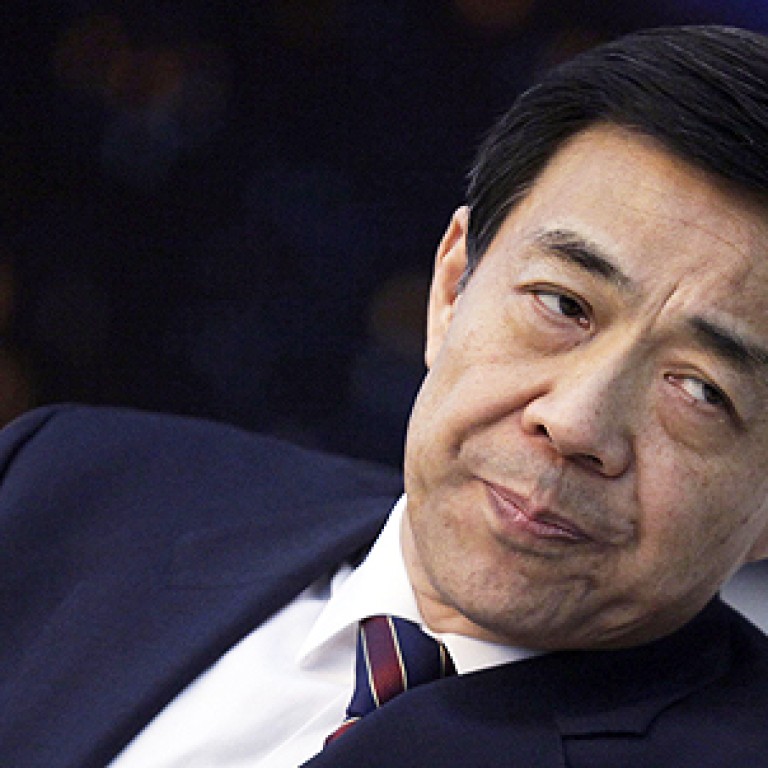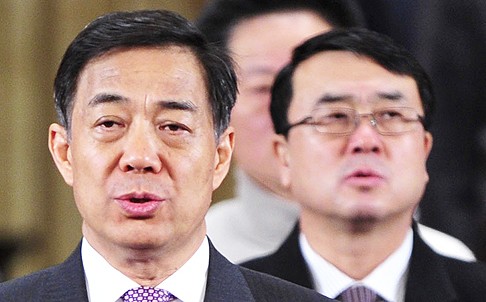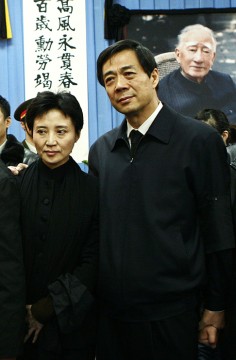
Leadership seeks smooth finale to Bo Xilai drama
The trial of China’s fallen political star Bo Xilai, expected next month, will be the final step in a downfall carefully stage-managed over the past year by a leadership seeking to reassert the stability he spectacularly upended.
Bo is the country’s highest-profile leader to face trial in decades, indicted for bribery, embezzlement and abuse of power in a scandal that saw his police chief flee to a US consulate and his wife convicted of murdering a British businessman.
Hashing out what to do with Bo reportedly posed a huge challenge for the political elite, who maintain their grip on power by not only keeping a lid on popular dissent but also by seeking consensus at the top.
But once those backroom negotiations were settled the actual trial could be smooth, with the fate of Bo – once a member of the ruling Communist Party’s top 25-member Politburo – presumably already agreed by the leadership, analysts say.
“The risks in the past were purely political and they were whether there would be a backlash around the parts of the elite around Bo,” said David Goodman, a professor at the University of Sydney.
“The most difficult parts” had all been completed, he said, while the trial was the “final bit of the process” and should be “relatively straightforward”.
The proceedings are due to be held in the eastern city of Jinan, and a source with direct knowledge of the case said the trial would take place next month.
Reinforcing the need for unity, top official media outlets issued stern warnings to back the Bo indictment – which formally paves the way for the trial – shortly after its announcement on Thursday.
Within minutes, the Xinhua state news agency said in a commentary: “The stability and security of the country can be ensured only when the authority of the central government is maintained.”
People should “firmly comply with the central government’s decision” and “wait peacefully for the legal trial”, it added.
Soon afterwards the Communist Party’s official paper, the , stressed the need to “care even more about unity, care even more about maintaining stability”.
As if to preempt any resistance from Bo’s power base in Chongqing, the pointed out that the central leadership had showed continued support for development in the city.

Bo was detained a month later and has not appeared in public since.
His wife Gu Kailai was handed a suspended death sentence in August for the murder of British business associate Neil Heywood, and Wang was given 15 years in prison the following month for defection and other crimes.
Soon afterwards Xinhua announced that Bo would “face justice” for alleged crimes from abuse of power to bribery to improper sexual relations, stretching back years to previous posts.
But unlike the barely believable twists and turns that prompted his downfall, the leadership’s handling of his fate since has been more controlled.
As with previous senior figures who fell, more than a year has passed between the initial scandal and actual punishment.

“It’s good that the case is moving forward – probably suggests they’ve been able to clean up some of the political aspects,” said David Zweig, a China expert at the Hong Kong University of Science and Technology.
Bo reportedly divided senior officials with his unconventional style and populist image, reviving the spectre of Maoism with the singing of “red songs” and breaking protocol with his open ambition.
He had been tipped for a spot in the top-most Politburo Standing Committee – whose handful of places are fiercely negotiated among political elites – during a once-a-decade leadership transition in November last year.
The last senior Chinese official to be judged for corruption, ex-railway minister Liu Zhijun, waited nearly two years after being ousted to go on trial. He was given a suspended death sentence – normally commuted to life imprisonment – earlier this month.
Similarly former Shanghai party boss Chen Liangyu, the last Politburo member to be tried for corruption, also faced a nearly two-year delay between his sacking and his sentencing in 2008 to 18 years in jail.
As with previous high-ranking officials, Bo is expected to escape the death penalty, which can be handed down in cases involving bribes exceeding 100,000 yuan (HK$126,551).
Goodman pointed out that even the arguably most likely candidate for execution in recent history – Jiang Qing, the wife of Mao Zedong and leader of the Gang of Four blamed for the tumultuous 1966-76 Cultural Revolution – was spared.
“At the end of the day this is going to be signed off by the Standing Committee of the Politburo, in some way, one assumes,” he said.
“Would this be a great precedent for them? They are always going to be thinking, my God, one day this could be me.”
